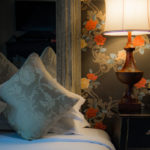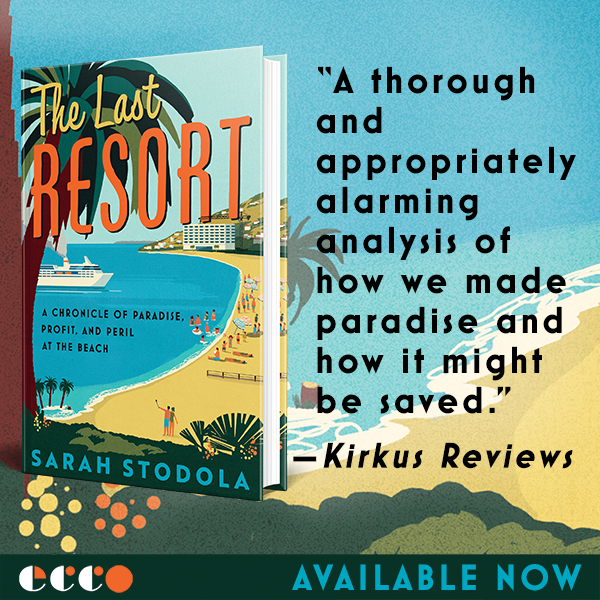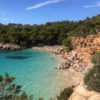The Bachelor and Bachelorette franchise has seen its share of coverage in the media, think-pieces deconstructing what it all means, bloggers dedicated to revealing spoilers, and recaps analyzing each week’s actions and decisions. The show has been parodied (Burning Love) and it’s been fictionalized (Unreal). All of these characterizations miss the fact that the series has on some essential level become a travel show.
In the the current season, starring Rachel Lindsay as the bachelorette, we find ourselves in the five-star hotels, in the helicopters over dramatic vistas. We find ourselves whisked to Hilton Head, then Norway, then Switzerland, and finally, after visiting the remaining men’s hometowns, on to Spain. It’s a trip of a lifetime.
It wasn’t always so. Like so many entities that start out with earnest intentions only to devolve into something less substantive and more ostentatious as their popularity soars, The Bachelor(ette) has gradually become more polished, and also more practiced. Everything is bigger and more elaborate, but very little feels unscripted. The locations provide the stage for this ostensible reality, and in recent seasons, those locations have risen from the background to become central to the show itself.
To see how the show’s approach to travel has evolved, I decided to re-watch the first season of The Bachelor. I remember responding to the concept of the show when it initially aired in 2003 with a sense of scandal, wondering if network television could possibly get away with something so degrading to the modern woman. But upon reflection now and with the viewing of at least a dozen other seasons under my belt, this inaugural version strikes me as pure of intention, with an almost intellectual approach to the experiment at hand. The women look like the real ones you pass on the street every day—attractive, but without any kind of professional enhancement, nary a hair or lash extension to be found. To the self-taught eye, they appear to have done their own hair and makeup.
They are also real in their career choices: “We have selected 25 fantastic women. We have two doctors, two lawyers,” host Chris Harrison explains to the bachelor, Alex, as episode one gets going. “Ten women have either already gotten their masters degrees or are in the process of obtaining their graduate degrees. We have a singer, actress, even an NBA cheerleader, so it really does run the gamut.” The commitment to matchmaking is palpable, even as much conversation is made over pondering whether this whole thing has a chance of working.
On that innocent first season, the bachelor never leaves the United States. Until the hometown dates (I’m assuming, if you’ve read this far, you don’t need me to explain what hometowns are), he and his suitors remain strictly within the realm of weekend trips from Los Angeles—Vegas, Malibu, Palm Springs. Only when it’s down to three do they adventure further afield, and then only as far as New York City, Lake Tahoe, and Hawaii. And then back to LA for the finale.
In the current season, by contrast, spectacle has overtaken the routine business of pairing up. For the final two episodes (excluding “The Men Tell All”), Rachel and the three remaining men spend two weeks in northern Spain. Upon arrival, Rachel, an intelligent, likeable, sensible human, steps out of a van, the camera panning up from her feet to her face, her big eyes so wide open staring at the Viura Hotel that her inch-long fake eyelashes don’t obscure them a bit. I’m assuming it’s in her contract to say exciting things about Spain, and she obliges. “Everywhere you look, it’s so gorgeous,” she says of La Rioja region, noting the colors and the cobblestone streets, two things American tourists are known to love.
In an establishing shot, Bryan wanders around town, stops in a narrow street to play soccer with three young boys, who were definitely not planted there by the Rioja Tourism Board.
On his date, Eric gets to go with Rachel to San Juan de Gaztelugatxe, a small rocky island just off the Basque coast topped by a picturesque hermitage. Eric and Rachel have the place to themselves, plus a bottle of wine. I looked it up online, and most reviews advise going early in the morning to avoid the crowds, and to do the opposite of Rachel and wear comfortable shoes, because it’s quite a hike.
For dinner, Rachel and Eric eat in the courtyard of a 15th century church in the town of Ezcaray. The Bachelor crew looovvvves setting tables for two up in places where no dinner table has any business being. From whence does the food materialize? It’s not for us to know.
On date number two, Peter and Rachel go to the Eguren Ugarte winery, which is portrayed as a mom and pop business—the “pop” emerges into the wine cellar and sings to them in Spanish—but is actually a major international operation. The old man also talks about building the winery with his wife, which, even though he’s old, is hard to reconcile with this being a 140-year-old winery. Fact-checking isn’t what it used to be, I know.
We have to wait until tonight to see the other sites in Spain, I mean find out who wins Rachel’s heart, but the credits of last week’s episode provide some insight into the travel-reality television complex. “Location Furnished by Bodegas Vivanco.” “Promotional Consideration Provided by Rioja DOCa.” “Accommodations Provided by Hilton Anatole Hotel [and] Hotel Viura.” “Date Activities Provided by Eguran Ugarte Bodegas [and] Ontanon.” “Hotel Provided by Finca de Los Arandinos.” “Location Provided by Vinedos del Contino.”
Is this kind of promotional consideration ultimately doing the entire concept of travel any favors? In return-on-investment terms, it’s hard to imagine the hotels seeing a bump in business, especially given the producers’ talent for making even the fanciest ones come across beige. I did reach out to the Victoria-Jungfrau Grand Hotel and Spa in Switzerland, which provided accommodations on bachelor Ben Flajnik’s season. The response I received suggested that hotel management hardly even knew it happened. Of the millions of viewers, which ones are going to take note of the hotel, and make a point of staying there?
In more abstract terms, the way travel is portrayed on the show deepens the notion that splendid corners of the world exist primarily to serve as a backdrop to every would-be protagonist’s most fanciful daydreams. In other words, it’s not about Spain, but about how Spain frames a person’s romantic notions of herself.
I realize I’m probably overthinking this. The Bachelor(ette) is silly, and most people who watch it, myself among them, are using it for entertainment, not as a travel agent. My point, then, I guess, is that just like on any travel blog or vlog that covers whichever location is willing pony up for the exposure, The Bachelor(ette) crafts its narratives around locations that help it become its most profitable self. The show has to make those places look good. The fantasy presented by The Bachelor(ette) has shifted away from a happily-ever-after romance and toward a glamorous lifestyle. As such, you’d be forgiven for switching on the show and thinking you’d landed not on ABC but rather the Travel Channel, or even more likely, Vogue’s YouTube channel.







